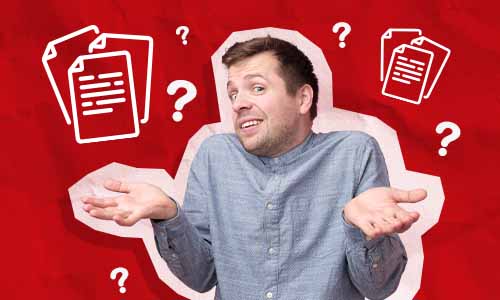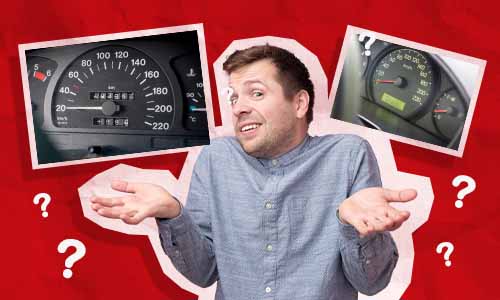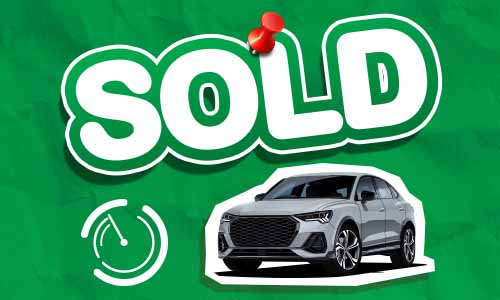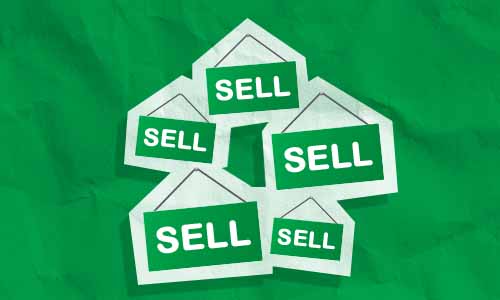Buying a used car: complete guide
Buying a used car as opposed to a brand-new model can be a great option if value and economy sit high on your priority list.
If you’re hoping to buy a new car on a modest budget, you may find that your options are limited to entry-level models. However, extending your search to the second-hand market should put many more desirable and feature-packed options within your reach.
If you’re hoping to buy a new car on a modest budget, you may find that your options are limited to entry-level models. However, extending your search to the second-hand market should put many more desirable and feature-packed options within your reach. Of course, there are certain pitfalls that you should be aware of when buying a used motor. The older a vehicle is, the more likely it is to develop mechanical faults. What’s more, if you buy from a private seller, it is unlikely that you will be offered a car warranty (unless the vehicle is still covered under the original manufacturer warranty).
Although buying any vehicle carries an element of risk, a little knowledge of the used car market can go a long way in helping you make an informed decision.
In this guide, we will cover the various options available for buying a used car, the checks you should carry out before buying – and the risks you should be aware of. We’ll also explain your rights as a used car buyer.
Get a free valuation
Where should I buy a used car?
We’ve summarised everything you need to know about the most popular used car buying avenues below to help you choose the right option for your specific needs.
Buying from a dealer
When buying from a dealer (this includes franchised dealers, ‘car supermarkets and driveway sellers), you will be covered by the Consumer Rights Act.
As such, dealers will usually prepare a used car before displaying it to help ensure it meets with prospective buyers’ expectations. This might include running diagnostic tests to verify whether the vehicle is in good working order, fitting replacement parts (if necessary) – and giving it a wash and valet.
However, this is not always the case. Therefore, before purchasing a car from a dealership, we recommend reading their online reviews. Pay particular attention to how they deal with customers’ concerns and disputes. If you are not fully confident that a dealer is reputable, do not buy from them.
Buying from a private seller
You could end up paying less for a particular car model if you buy from a private seller than you would at a dealership. What’s more, there is often more scope to negotiate when buying a car from a private seller, particularly if they have already bought a new car.
Therefore, you should prepare a list of questions to ask before buying a used car from a private seller. Asking the right questions will help you decide whether the vehicle is right for you. If you identify any minor faults, but are otherwise keen on the car, this may allow you to leverage a discount.
However, if you buy from a private seller, you may not get the same level of consumer protection as you would from a dealership. The only legal requirements for selling a car privately are as follows:
- The seller must have the right to sell the car.
- The car should match the description provided by the seller.
- The car must be roadworthy.
If after buying a car from a private seller you believe they have breached these terms, you have the option to raise the issue at a small claims court. Unfortunately, this can be a difficult and potentially expensive process – and there is no guarantee you will be successful.
Therefore, before committing to the sale, you should inspect the car by reviewing its documentation, taking the car for a test drive, researching its history and ensuring it matches the buyer’s description.
If you’re buying a used car as a long-term investment, paying for a professional inspection could prevent the need for costly repairs in the future.
Buying at auction
Here are some things you need to know when navigating the process of buying at auction:
- Car auctions for both trade and private buyers take place across the UK every week.
- When you arrive at a car auction, read the catalogue to decide which car(s) you wish to bid on. Car auction catalogues usually include descriptions of the vehicles that are up for auction and details of their history.
- Some auctions allow you to inspect the cars prior to bidding. This can give you a better idea of each car’s overall condition.
- You should set a budget before the auction begins to ensure you don’t overspend. (Make sure you factor in any additional costs, such as the buyer's fee.)
- When the auction begins, you can bid by raising your hand. Each car in the auction will go to the highest bidder. If you make a winning bid, the auction house will usually require you to pay an immediate deposit to secure your purchase.
- After the auction has finished, you will need to sign the documents and pay the remainder of the sale price. Then the car is yours. (Just remember that it is your responsibility to ensure the car is taxed, MOT certified and insured.)
- Auction houses sometimes provide temporary insurance services, which will allow you to drive the car home before making long-term insurance arrangements. However, not all auction houses offer this, so you should check beforehand, as driving without insurance is illegal under any circumstances.
Buying a used car online
You can buy a used car online by bidding - or in some cases, buying instantly. This can be a convenient option if you don’t have the time to attend an auction in person.
To reserve a car at an online auction, you will usually need to pay a deposit. You should avoid buying a car without seeing it first. (It is easier for a seller to conceal serious faults when presenting a vehicle online).
If you go to pick up a car but are unhappy with the vehicle, you have the right to walk away from the sale. You would be entitled to a full refund of your deposit in this case - as you have not seen the car in person, it would be classed as a ‘distance sale’.
What should I check when buying a used car?
There are numerous factors to consider when buying a used car, including:
- Mileage – Mileage affects value. If a vehicle appears to have a good mileage for a used car, you should investigate whether this reputed mileage is genuine. An unscrupulous trader might doctor a vehicle’s mileage to increase its perceived value. You should run a free MOT check on any vehicle you are considering. (If you notice a mileage discrepancy on an MOT certificate, this may indicate mileage tampering has occurred.)
- Accident damage – Check for signs of accident damage and look out for evidence of sub-par repair work such as mismatched paint or panels.
- Safety – Checking that the tyres, seatbelts and airbags are in good condition will help you to avoid any nasty surprises in the future. (A used airbag is a clear sign that a car has been in an accident.)
- Test drive – Taking a test drive will allow you to experience how the vehicle handles in various road conditions. You’ll also notice whether any dashboard warning lights stay illuminated when starting the vehicle.
- Engine – Does the engine produce any concerning noises - or does the oil warning light illuminate when the engine starts?
- Locks, windows and vehicle controls - Do they work correctly? If not, you could be hit with hefty repair bills further down the road.
What documents should I check when buying a used car?
- The V5C logbook – This is arguably the most important document of all. You should check that the registration, make, model and VIN number referenced in the logbook match up with the vehicle in front of you. (Whilst it is technically legal to sell a car without a V5C logbook, the DVLA strongly advise against buying one.)
- Owner’s manual – You should also check the manual to ensure that all the information matches up with the vehicle.
- Service book – Review the service book to check the car’s service history. A full service history will reveal whether the car been well maintained throughout its life.
- MOT certificates – Take a look at the MOT certificates if they are available, as this will tell you whether the vehicle has previously failed MOT tests – or developed dangerous mechanical faults. (You can also see the vehicle’s past MOT results by entering its reg number into our free MOT check tool.)
Test drive checklist
- Test the vehicle at a variety of speeds and on different road surfaces to see how the car handles.
- Listen out for rattling or unusual engine sounds.
- Ensure the brakes and clutch are responsive and work correctly.
- Make sure the steering feels responsive and there is no vibration.
For more tips and advice on this topic, please visit our guide ‘How to test drive a car’.
What questions should I ask when buying a used car?
If you’re wondering what questions to ask when buying a used car, here are a few to consider:
- Is the seller legally permitted to sell the vehicle? (Has the car been stolen?)
- Has the car been written off?
- Does the seller have the documents needed to sell the car?
- How many previous owners has the car had?
- What is the car’s mileage?
- Is the car as described in the ad?
- Does the car have outstanding finance?
- Can I test drive the car?
- Am I pleased with the condition of the car?
- Is this an approved used car?
Consider the MOT and service history of a used car
It’s important to check a used car’s MOT and service history, as this will give you a good indication of how well the vehicle has been cared for.
Checking the MOT history can reassure you that the car is in good working order, whilst the service paperwork will tell you whether the car has been serviced at the recommended intervals.
How do I check the history of a used car?
You can find all MOT results from tests taken from 2005 onwards (from 2017 in Northern Ireland) using our free MOT check tool. Simply enter the car’s reg number to get started.
You should be able to find records of the vehicle’s service history in the service book. The owner should also have paper records of each service from the relevant garages and dealerships.
If the service history is absent or incomplete, please visit our guide to finding a car’s missing service history. Requesting a HPI check can also provide you with more detailed insights into the car’s history.
Getting the best deal for a used car
- Find out how much the car is worth by entering its registration into our free car valuation tool. (You can also factor in the vehicle’s age using our car depreciation calculator.)
- Also consider market seasonality. There may be less demand for a specific vehicle at certain times of year. What’s more, you might also be able to leverage a better deal if the biannual number plate changes (in March and September) are approaching.
- Research prices for similar cars online and present them to the seller. (Evidence of lower prices for comparable vehicles may persuade them to reduce their price).
- Have a maximum spend in mind when negotiating. If the seller doesn’t accept your first bid, be prepared to raise your offer. Try to meet them in the middle.
Although this might seem daunting, a little haggling can go a long way when it comes to getting a great price on a used car. Visit our guide ‘How to negotiate when buying a car’ for more advice on this topic.
Paying for a used car
The seller may offer you one or more of the following payment options:
- Card payment – Many dealers prefer this method, as it is one of the most secure.
- Buying a car with cash.
- Paying by cheque – Some private sellers may be wary of this method, due to the potential for fraud.
- BACS (Bankers’ Automated Clearing System) or CHAPS (Clearing House Automated Payment System) transfer – Sending a BACS transfer costs between 5-50p, whilst the fee for a CHAPS payment may be between £15-25 depending on your bank.
If you are buying from an auction house, you will usually need to pay a deposit to secure the vehicle.
Please note: We advise against using PayPal to pay for a used car. (If you pay for a vehicle with PayPal, you will not be covered under their buyer protection.)
Frequently Asked Questions
If you’re wondering ‘What is a good mileage on a used car’, simply divide the quoted mileage of a car by the number of years on the road. If this gives you a figure below 7,500, this can be considered a low mileage.
Anything above this figure can be considered a high mileage. However, don’t be hasty to write off a car just because it has a higher-than-average mileage. If the vehicle has been well cared for and is in good working order, it could be a wise purchase.
To determine whether a used car meets your requirements, you should inspect the vehicle in person. Check the engine, gearbox, clutch, bodywork, wheels, tyres and interior to make sure there are no major concerns.
Taking a test drive can give you a true indication of how the vehicle handles at various speeds. It will also help you decide whether the vehicle is suitable for your daily driving needs.
Entering the vehicle’s registration into our free car check tool will reveal key information such as its Co2 emissions level, tax status and past MOT results. Finally, you should also check that the seller has all the documents needed to sell the car.
To determine whether a car has been in an accident, you should look for:
- Body filler.
- Cracks in the bumper.
- Paintwork differences or bubbling.
- Misaligned panels.
- Different bolts and hinges.
- Unevenly worn tyres.
- Welding marks.
- Scratches.
- Signs that the airbag has been deployed (e.g. split seams and paint residue around the casing.)
You should also check whether the car has a category. If an insurer writes off a car, they will assign an insurance category to the vehicle:
- If a car is assigned Category A or B, it cannot be repaired to roadworthy condition or sold for use on the roads.
- Category A cars must be scrapped whilst those in Category B may be salvaged for useful parts.
- Category S and Category N cars can be restored for use on the roads.
- However, bear in mind that a car will always be worth less after an accident. Even if it has been repaired to a high standard, an accident-damaged car may have persistent mechanical or structural issues.
- However, bear in mind that a car will always be worth less after an accident. Even if it has been repaired to a high standard, an accident-damaged car may have persistent mechanical or structural issues.











